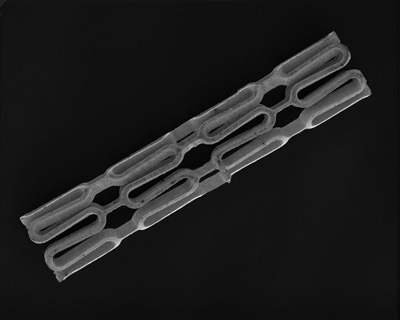Seeking an alternative to magnesium-based stents, researchers at Michigan Technological University (Houghton) are conducting studies on a stent design made from zinc. This material, the scientists say, offers better degradation rates than magnesium and can be processed in such a way as to increase its mechanical properties. In the following conversation, Jaroslaw Drelich, professor in the department of materials science engineering, and Patrick Bowen, PhD candidate in materials science and engineering, share their insights into zinc as a potential candidate for next-generation absorbable stents.
MPMN: Please go into zinc’s properties and why it is suitable for absorbable stent applications? What is its absorption rate and how does it affect the body as it absorbs?
Drelich: We don’t yet have data on the behavior of zinc in the human body. Thus far, we have performed only in vitro and in vivo studies, the latter of which was limited to small-animal models. While we have some indication of zinc’s effects on the human body, we cannot yet say for certain.
Read the full interview at Qmed, by Bob Michaels.

